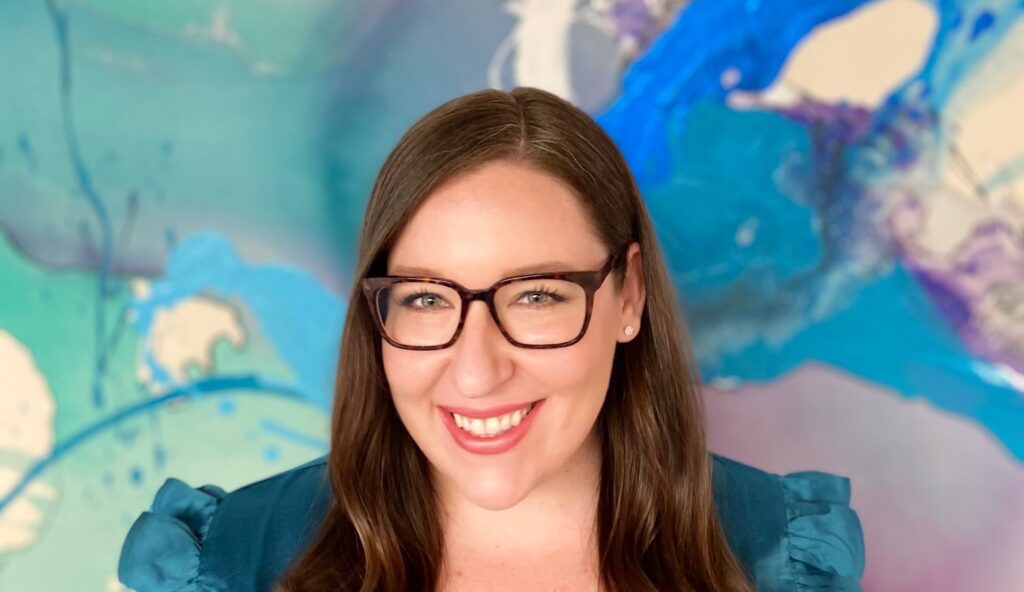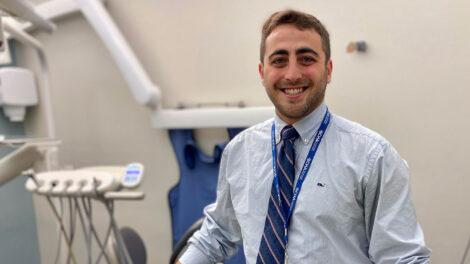Lafayette economic degree prepared her for a career in arts management
By Bryan Hay
As chief operating officer of International House Philadelphia, which provides arts and humanities programming and supports people working to make Philadelphia more welcoming and globally connected, Sarah Christy ’10 routinely taps her Lafayette economics degree to communicate financial information to curators, board members, and colleagues.
She says Lafayette’s economic program has prepared her well for a career in arts management because economics and business principles learned can apply to any field, including the arts. Data analysis, critical thinking, writing, and research equipped Christy with a competitive set of skills that differentiates her from other arts professionals.

Sarah Christy
Please describe your current role at International House Philadelphia, why your work there is satisfying, and how your Lafayette economics degree prepared you for a career in arts management.
I am currently the chief operating officer of International House Philadelphia. In my role, I oversee all administrative operations of the nonprofit organization including finance, human resources, programs, and marketing. I also work closely with the president and CEO on strategic planning and board relations. I previously served as the organization’s director of programs and managing director of the public arts program Lightbox Film Center, a repertory cinema. Working in a mission-driven environment motivates me daily because I believe in the transformational power of the arts. I am passionate about utilizing my leadership to ensure arts programs are run professionally, reach a wide and diverse audience, and make the greatest impact possible in the community.
My Lafayette economics degree has prepared me for a career in arts management because the economics and business principles that I learned can apply to any field, including the arts. Being able to understand financial statements and accounting principles, and effectively communicating complex financial information to curators, board members, and colleagues, have been extremely valuable in my career. The tools that you learn and utilize as an economics major like data analysis, critical thinking, writing, and research provided me with a competitive set of skills that differentiates me from other arts professionals.
Was arts management a career goal from the start or an interest that developed later?
I have always loved and participated in the arts, but never envisioned a career in arts management. I planned to work in finance, marketing, or law after graduation, but my experiences at Lafayette enabled me to see a path that could combine my passion for the arts with my business acumen. My biggest piece of advice to any Lafayette student is to take advantage of every opportunity the College has to offer.
You never know which of those experiences will be valuable on your career path. It was through my participation in student life activities and the career center that I was exposed to new opportunities that ended up shaping my career direction. Leadership roles with various student clubs, including the Lafayette Dance Team and Marquis Players, helped me realize how much I enjoyed the management side of the arts. It was then through internships gained through Lafayette connections that I was first exposed to the nonprofit arts world and realized how much I enjoyed being in that environment, working alongside artists and creatives on the business side of operations. I later received a master’s degree in arts administration from Drexel University, once I had a clear sense of my career interests.
If you had an opportunity to give a sales pitch for Lafayette’s economics program, what would that look like?
An economics degree from Lafayette College provides you with a broad range of skills and knowledge that will prepare you to competitively enter any field after graduation. The College’s liberal arts curriculum allows you to supplement your economics courses with a variety of subject areas and find connections to what you learn in your major area of study. Having the opportunity to take coursework in philosophy, art, and psychology informs my leadership and has made me a well-rounded professional. The flexibility of the program, coupled with small class sizes and the ability to work closely with professors, enables you to infuse your studies with your own academic and extracurricular interests.
I remember finding ways to incorporate my interests into assignments throughout my studies, whether choosing the nonprofit sector for a research paper or utilizing my event planning skills to support the election broadcast. I was an EXCEL Research Scholar in economics but was also able to take an interim abroad course to study geology. The value of a Lafayette education is the diversity of experiences and perspectives you will gain, and I encourage all students to be open to the many opportunities that the College has to offer.


